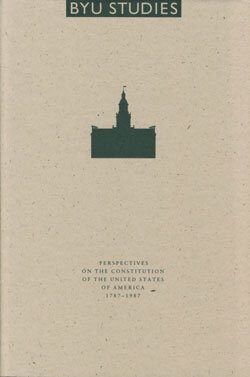Constitutional Interpretation and the American Tradition of Individual Rights
Article
Contents
Thomas B. McAffee says in this article: “In this essay, I will offer grounds for doubting the correctness of the first of these views. As to the second, it would require a separate article to fully defend the traditional assumptions that the Constitution binds us until it is amended and that we are bound by the ascertainable meaning of the document where it is clear from text and context. These were the premises of Marbury vs. Madison, and I consider them to be woven into the fabric of our law. At a more practical level, the view that we are not bound by the clear meaning of the text would not be sustained by the American public for a month if the Supreme Court were to announce it as the basis for a “constitutional” judgment. And advocates of such positions would have a difficult time persuading presidents and legislators that they should consider themselves bound by Supreme Court decisions if the Court viewed itself as empowered to amend clear text by ascribing a meaning of its own. If courts are bound by clear text, as most have supposed, it is difficult to see why they should not be equally bound by context fully capable of clarifying the meaning of text.”
Notes
- Perspectives on the Constitution—Origin, Development, Philosophy, and Contemporary Applications
- The Constitution as Covenant
- Public Virtue and the Roots of American Government
- The Best Constitution in Existence: The Influence of the British Example on the Framers of Our Fundamental Law
- The Summer of 1787: Getting a Constitution
- The Judicial Campaign against Polygamy and the Enduring Legal Questions
- Mormonism, Philosophical Liberalism, and the Constitution
- Constitutional Interpretation and the American Tradition of Individual Rights
- Bicentennial Reflections on the Media and the First Amendment
- One Moment, Please: Private Devotion in the Public Schools
- Terrorism and the Constitution
Articles
- From an English Major Teaching Law
- Her Body
- Excavation
- Imprint: Fragment from a Childhood
- Fires
- Laie Nights
- Going to Grandmother’s
- Constitution: Ben Franklin
Poetry
Purchase this Issue
Share This Article With Someone
Share This Article With Someone


